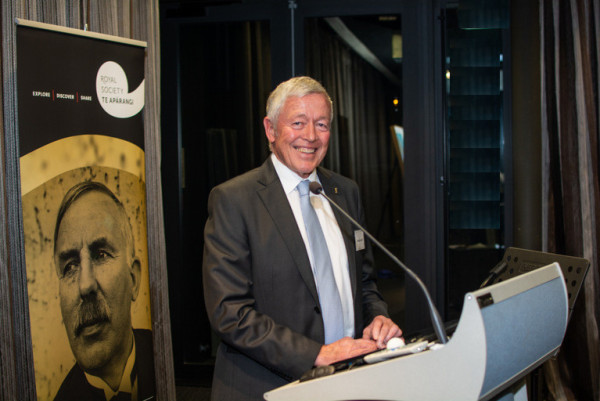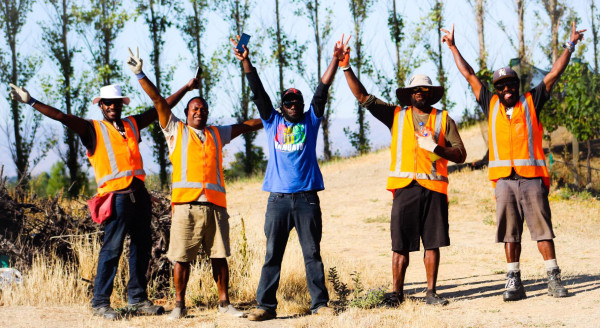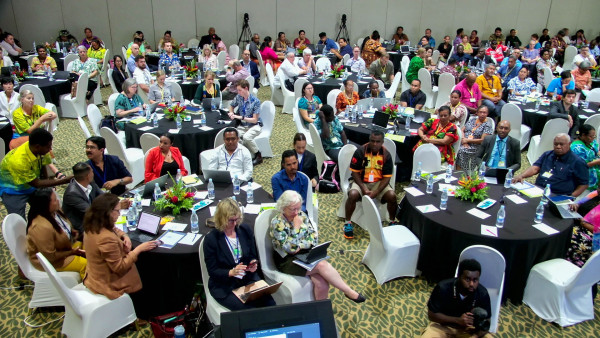Collectively building the resilience of Pacific labour mobility
4 Oct 2024
The Pacific labour mobility landscape has evolved considerably since the inception of the New Zealand Recognised Seasonal Employer (RSE) scheme and the Pacific Australia Labour Mobility Programme (originally the Seasonal Worker Programme and Pacific Labour Scheme). The onset of COVID-19, economic recessions, natural disasters and changing government policies have contributed to this evolution, warranting a relook at Pacific labour mobility settings to ensure resilience and sustainability.
The 2024 Pacific Labour Mobility Annual Meeting (PLMAM) seeks to launch this discussion under the theme of "Collectively Building Resilience". The PACER Plus Implementation Unit (PPIU) sat down with one of the leading experts on Pacific labour mobility, Emeritus Professor Richard Bedford, to get his insights on this theme and what we can envisage from the discussions at PLMAM.

Emeritus Professor Richard Bedford.
At the core of any considerations on the sustainability and resilience of Pacific labour mobility are the Pacific workers who supply labour and the New Zealand and Australian employers who demand their labour. Workers' families and households should also not be discounted as they play a critical role in shaping the behavior and decision making of Pacific workers even when they are away from home. In this regard, the continued success of Pacific labour mobility really stems from ensuring that the costs to the workers and employers do not outweigh the benefits.
Professor Bedford pointed out that the issue of costs versus benefits was the subject of a lot of discussion at the recent annual RSE Conference in New Zealand.
"Several changes to a number of provisions relating to minimum payments to workers were announced at the Conference and while these have provided some welcome relief to employers they attracted sharp criticism from representatives of Pacific Governments who were in attendance," noted Professor Bedford.
The details of the changes can be found here and here, but one of the key concerns the Pacific representatives had was the absence of any consultation with them about the proposed changes in advance of their announcement and very rapid implementation, which was four days after the conference.

Sudden changes in policy either in the labour sending or the labour receiving countries can create major challenges to key stakeholders in temporary migration schemes like the RSE and PALM.
Consultation is clearly at the heart of PLMAM's theme of "Collectively Building Resilience". Sudden changes in policy either in the labour sending or the labour receiving countries can create major challenges to key stakeholders in temporary migration schemes like the RSE and PALM. As Vanuatu's High Commissioner to New Zealand, His Excellency Mr. Jimmy Nipo, stressed in a thought-provoking keynote address entitled Sustainable bilateral relations: Vanuatu and the balancing act, "To ensure that our bilateral relations are sustained, the mutual benefits must be balanced out. The act of balance must be mutual. Open conversations must be done regularly."
PLMAM provides very valuable opportunities for "open conversations" about how we deal with ensuring balance in the distribution of costs and benefits from temporary labour migration policies. The impacts of climate change on economies and societies in the region must also be part of these conversations, not only because changing weather conditions are affecting workers' hours of work and earnings, but also to determine how labour mobility can be used to build the resilience of their communities at home.

Stakeholders at the PLMAM 2023 in Port Vila, Vanuatu. Professor Bedford emphasised that the importance of PLMAM lies in its ability to "provide a forum where a wide range of labour mobility stakeholders feel that they can share their views."
"There is real potential for a good relationship between countries in terms of temporary schemes that can enable people to earn money to help support their communities. The question is how do we maximise opportunities in these schemes to support that aspect of resilience in Pacific countries?" said Professor Bedford.
Addressing these issues and building the resilience of Pacific labour mobility requires changes to policy settings in both labour receiving and labour sending countries. PLMAM provides a valuable platform for discussions to inform policy formulation in both labour sending and labour receiving countries particularly as it brings together workers, employers, governments of labour sending and labour receiving countries, unions, academics, private sector, civil society, and regional organisations.
Professor Bedford emphasised that the importance of PLMAM lies in its ability to "provide a forum where a wide range of labour mobility stakeholders feel that they can share their views." PLMAM also provides a platform for these views to be translated to action through an Outcomes Document which provides agreed actions to be implemented by various Pacific labour mobility stakeholders including the PACER Plus Implementation Unit.
Subscribe today
Don't miss our latest updates and news about PACER Plus